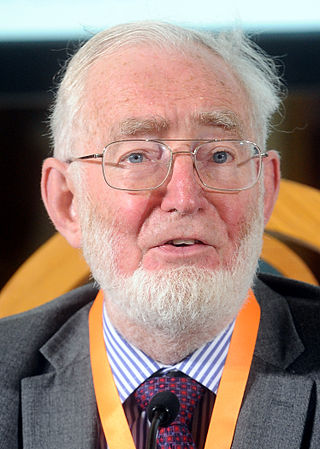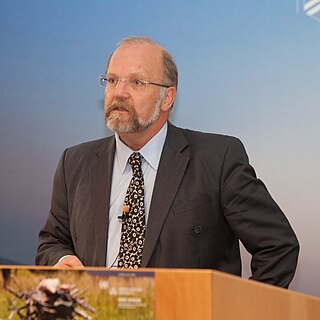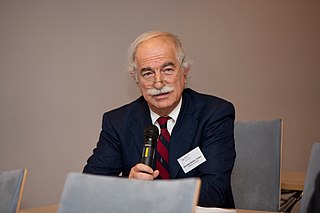
In economics, the Gini coefficient, also known as the Gini index or Gini ratio, is a measure of statistical dispersion intended to represent the income inequality, the wealth inequality, or the consumption inequality within a nation or a social group. It was developed by Italian statistician and sociologist Corrado Gini.

Economic inequality is an umbrella term for a) income inequality or distribution of income, b) wealth inequality or distribution of wealth, and c) consumption inequality. Each of these can be measured between two or more nations, within a single nation, or between and within sub-populations.

In economics, income distribution covers how a country's total GDP is distributed amongst its population. Economic theory and economic policy have long seen income and its distribution as a central concern. Unequal distribution of income causes economic inequality which is a concern in almost all countries around the world.
Income inequality metrics or income distribution metrics are used by social scientists to measure the distribution of income and economic inequality among the participants in a particular economy, such as that of a specific country or of the world in general. While different theories may try to explain how income inequality comes about, income inequality metrics simply provide a system of measurement used to determine the dispersion of incomes. The concept of inequality is distinct from poverty and fairness.

The distribution of wealth is a comparison of the wealth of various members or groups in a society. It shows one aspect of economic inequality or economic heterogeneity.

Sir Anthony Barnes Atkinson was a British economist, Centennial Professor at the London School of Economics, and senior research fellow of Nuffield College, Oxford.
The Atkinson index is a measure of income inequality developed by British economist Anthony Barnes Atkinson. The measure is useful in determining which end of the distribution contributed most to the observed inequality.
Lars Osberg has been a member of the Economics Department at Dalhousie University since 1977. He also worked for a brief period at the University of Western Ontario. He is well known internationally for his contributions in the field of economics. His major research interests are the measurement and determinants of inequality, social exclusion and poverty, measurement of economic well-being, leisure co-ordination and economic well-being, time use and economic development, economic insecurity.

The United Nations University World Institute for Development Economics Research (UNU-WIDER) is part of the United Nations University (UNU). UNU-WIDER, the first research and training centre to be established by the UNU, is an international academic organization set up with the aim of promoting peace and progress by bringing together leading scholars from around the world to tackle pressing global problems.
Esfandiar Maasoumi is an econometrician and an economist. He is a Distinguished Professor at Emory University. He received his bachelor's and master's degrees from the London School of Economics. He earned his Ph.D.in 1977, also from the London School of Economics. He is fellow of the Royal Statistical Society, a Fellow of the American Statistical Association, and a fellow of the Journal of Econometrics. He is ranked in the Econometricians Hall of Fame. Maasoumi has served as Editor of Econometric Reviews since 1987. He has influential contributions in forecasting, specification analysis, information theory, multidimensional welfare/wellbeing, mobility and inequality. He has published more than 100 articles and reviews in the leading journals in economics. Ph.d advisor: Denis Sargan Citizen: US and Iran Born: Tehran, Iran Mother: Sharifeh Fakhri Father: Ahmad Daughter: Maya Amitis, born on May 19, 1982. High school: Hadaf III, Tehran
Stephen Charles Smith is an economist, author, and educator. He is Chair of the Department of Economics, and Professor of Economics and International Affairs at George Washington University. He is also a Research Fellow of the Institute for the Study of Labor (IZA).
Wan Guanghua is a Chinese economist. He is Principal Economist at the Asian Development Bank. Formerly Project Director at UNU-WIDER, he has taught and researched in development economics an applied econometrics at a range of universities including the University of New England and the University of Sydney and he is an honorary professor at several leading universities in China. He is particularly noted for pioneering work in the development of regression-based decomposition techniques for inequality and poverty accounting. He has many academic papers published in peer reviewed journals.

Finn Tarp is a Danish professor of development economics at the University of Copenhagen and former director of UNU-WIDER (2009-2018), Helsinki, Finland.
China's current mainly market economy features a high degree of income inequality. According to the Asian Development Bank Institute, “before China implemented reform and opening-up policies in 1978, its income distribution pattern was characterized as egalitarian in all aspects.”

Giovanni Andrea Cornia was an Italian development economist. He was professor of economics, department of economics and management, at the University of Florence. He had previously been the director of the Regional Institute of Economic Planning of Tuscany, the United Nations University World Institute for Development Economics Research (UNU-WIDER), in Helsinki, and the Economic and Policy Research Program, UNICEF Office of Research-Innocenti, in Florence. He was formerly also chief economist, UNICEF, New York. His main areas of professional interest were income and asset inequality, poverty, growth, child well-being, human development and mortality crises, transition economics, and institutional economics. He was author of over a dozen books and dozens of articles, reports and working papers on practical development economics issues in individual countries, regions and globally. Born on 9 April 1947, he died in July 2024, at the age of 77.

Rolph Eric van der Hoeven is emeritus professor on employment and development economics at the International Institute of Social Studies in The Hague and was appointed in 2009 as a member of the Committee on Development Cooperation of the International Advisory Council (AIV) to the Dutch Government. Dr. van der Hoeven is a member of the Board of Trustees of the KNCV Tuberculosis Fund.
Sanjiv M. Ravi Kanbur, is T.H. Lee Professor of World Affairs, International Professor of Applied Economics, and Professor of Economics at Cornell University. He worked for the World Bank for almost two decades and was the director of the World Development Report.

Andy Sumner is an inter-disciplinary development economist. He has published extensively on global poverty, inequality and economic development including ten books.










